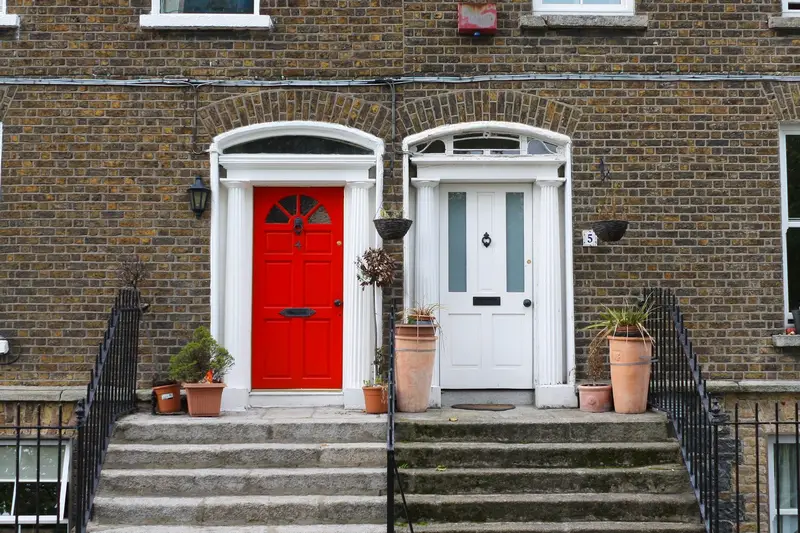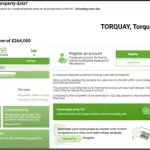
When it comes to working out the value of real estate, property sales comparables are an essential element of how to arrive a what a property is worth. As a homeowner, property sales comparables will help you know if an estate agent has valued your property correctly, but property sales comparables are also an important indicator of how much to pay for property too. Property comps are as important whether you’re buying your next home or investing in your next property.
What is comparable sales for the property?
Property sales comparables (comps) are sold prices of similar size properties in the same location. When researching property sales comparables you should focus on recent completed sales rather than on properties still for sale or the sale is pending, and ignore properties sold over 12 months ago.
If you are a property investor, property sales comparables reduce your investment risk to stop you paying too much for property, and comps help reduce your risk of losing money when flipping property (see example below of how important this is when using bridging finance).
Please also read this article to discover how you could save £71,475 on your next mortgage if you sell your house and rent before buying again. Even I was amazed when I did the calculations! The strategies you learn in this article will not only save you money, but it will also reduce the stress of buying your next house.
What does it mean for a property to be comparable?
For a property to be comparable to another property that is being appraised, the comp property has to be in a similar location and ideally within 1/4 mile, be similar in size and have the same number of bedrooms and bathrooms, and it should have sold within the last 3 months.
What to consider for property sales comparables
Comps or property sales comparables for a property are other properties that are similar in the following ways:
- Location, location, location: Make sure comparable properties are in a similar location, for example; distances to public transport like tube stations, waterfront location, busy main road, golf course, noisy airport etc.
- Property Type: The type of property should be the same, for example; detached, semi-detached, terraced, bungalow etc.
- Number of bedrooms: The number of bedrooms should be the same, as the price of a 2-bed house will never be the same as one with 3 bedrooms.
- Number of bathrooms: The number of bathrooms a property has affects its desirability and its market value, so these should ideal be the same, including the number of ensuites and cloakrooms or half baths in America.
- Distance from property: The comps you check need to be in the same area, and ideally within 1/4 mile of the property you are looking to value, and preferably in the same postcode area.
- Property condition: The condition of the property should be similar when comparing recent renovations or is the property similarly rundown, does the property sales comparable have a new or old kitchen or new or outdated bathrooms?
- Plot size: The size of plot will impact a property’s value, which means the plot size and and garden should be within 10% of the property you are comparing.
- Square footage: The comparable property should have a similar internal square footage and ideally within 10% of the property you are comparing.
- Number of floors: The the same number of floors is important, as there’s a world of difference between a single floor bungalow or ranch-style home vs a three-story town house.
- Garden direction: The direction a garden faces is important to homeowners, as some prefer a south facing garden, vs others who prefer a north facing garden. South facing gardens tend to be more popular and value higher, so your comps should take this into account too, as you shouldn’t be comparing a property with a south-facing garden if the one you are trying to value has a north facing garden.
- School catchment: School catchment is extremely important to homeowners with children, and this will impact the price a person is prepared to pay for a property, which is why sold comparables need to consider its school catchment area.
- Garage: Whether or not the property has a garage will affect it’s value, which means the comps should include properties with or without a garage depending on the property you’re trying to evaluate.
- Parking: Off-street parking is an important buying factor for many homeowners, especially in busy towns and cities and will impact the value of comparable properties.
- Recency of the sale: How long ago the comparable property was sold is critical in deciding if the comp is reliable, and ideally you should only consider properties sold within the last 6 months. But if the property market is moving fast and prices are on the up, you may need to reduce this to 3 months or even less*.
- Age of property: It’s important to use property sales comparables of similar aged properties, for example you should be careful to not compare a new-build house with an old Victorian style property.
- Features: It’s important to consider other features property sales comparables have like the number of reception rooms, swimming pools, conservatories and an office or study.
* During the Covid-19 pandemic there has been a problem with Land Registry who are behind on registering sales, which makes property sales comparables in the UK much more difficult. It is the sold prices on Land Registry that feed into comparison property sites like Zoopla.
How do you do comparables in real estate?
- Try to find comps that are close by (i.e. within 1/4 mile).
- Try to find comps that have sold recently (i.e. within 3-6 months).
- Try to find comps that have similar square footage (i.e. within 10% either way).
- Expand your search out further if you can find comps (i.e. within 1/2 mile).
- Expand out even further if you still can’t find comps (i.e. within 1 mile).
- Then reduce the distance back to 1/4 mile and adjust factors like square footage to say 15-20% and recency of sale to 9 months or even 12 months.
What if there are no comparables in the area?
How you you price a house without comps where no comparable properties in the area to value a property you are looking to sell or buy, follow these guidelines:
- Recency of sale: Adjust your search from properties that were sold within 6 months to those sold 9 months or possibly 12 months ago, but ideally no longer, especially if the area has a booming property market.
- Distance from property: Instead of your restricting your search to 1/4 mile, adjust this to 1/2 mile or maybe a mile at the most.
- Square footage: If you can’t find properties that have a similar square footage within about 10% either way, increase this to 15% or 20% difference.
When you’ve found comps that are not within an ideal 1/4 mile distance, that have sold longer ago than 6 months or have a square footage that is greater than 10% larger or smaller, you need to adjust the these values accordingly.
But when it comes adjusting for the square footage, don’t simply do a straight comparison, as it’s never a Pound for Pound or Dollar for Dollar comparison, as there is a diminishing price per square foot of added value the bigger a property gets.
For example, the the first 1,000 square feet is going to be worth more than the last 1,000 square feet. Also, make sure the house isn’t “over-built” for the area, whereby the property comp is 4,000 square feet and every other house is 1,500 square feet.
When it comes to area, if the property sales comparable is outside the recommended 1/4 mile area, if this further away area is similar in so far as has the same school catchment, the property has a similar location factors such as closeness to views of parks, located on a waterfront, busy roads, railway tracks or airline flight paths, then this comp should be okay to use.
How far away can Comps be?
When researching property sales comparables (comps) to determine another similar property’s value you should look at completed sales of properties within 1/4 mile of the property being appraised, and preferably not further away than 1 mile and those that have sold within the last 3-6 months.
How do you calculate comparable sales?
To calculate property comparable sales find as many recently sold comparable properties as you can in the same location to calculate the market value of the property you’re appraising. If the comps are different in size, location or sold more than 6 months ago, adjust your calculations accordingly.
For property sales comparables only use sold properties
It is important for property sales comparables to use those properties that have been sold, so don’t use properties for comps that are currently for sale or are pending sales with SSTC status on property sites of Rightmove.
Where to find property sales comparables
You can find property sales comparables on sites like Zoopla, Mouseprices or Zillow, and if you are prepared to pay for the information you can sign up to Rightmove’s Surveyors Comparable Tool.
Do comps matter in real estate?
Once you understand how much real estate comps matter you are less likely to overpay for a property, whether you’re buying for your next home or as an investment. Comps also matter if you’re selling, as they help you know how much your own property is worth before listing it for sale with an agent.
How important are real estate comps?
Real estate comps are really important to property owners, whether you’re buying or selling real estate, but they are also important to the lenders too. Mortgage lenders are cautious, and consider comps as a very important component for assessing how much a property is worth and how much to lend.
The importance of comparables in real estate is illustrated well in the following recent example.
What is the importance of comparables in real estate?
For example, we have just gone through the process of remortgaging a property purchased with bridging finance and recently refurbished. It was during this process when discovered just how important real estate comps are.
We appraised the property at the time of buying it, and thought it’s newly refurbished value would be at least £450,000, but when the surveyor valued it at £380,000 we were shocked. Annoyingly, we had asked a member of our team to meet the surveyor at the property and hand them our property appraisal pack.
This appraisal pack included nearby comps that would help the surveyor value the house, but the problem we had was two fold. The team member didn’t give the surveyor the appraisal pack, and the surveyor couldn’t find many nearby comparable properties.
Interestingly, directly opposite our property was a similar size house for sale for £550,000 that needed refurbishing, but the survey rightly ignored this property as it hadn’t yet sold. What was also against us was the effects of Covid-19, whereby Land Registry had a huge backlog of registering sales, which limited the number of recent property sales comparables in the area.
In the end we managed to appeal the bank’s valuation, and they agreed with our assessed value of £450,000. So all’s well that ends well, and we should have the remortgage through next Friday.
Should you provide comps to appraiser?
You should provide comps to an appraiser as this will make their job easier when appraising the fair market value of your property for lending purposes.
How many comps do you need for an appraisal?
Three properties is an ideal number of comps for an appraisal, but the more property sales comparables you can find of similar properties in the same location the better, as this will give you more confidence you are not overpaying for a property, or selling a property at less than market value.
What do comps tell you?
Comps (property sales comparables) tell you the fair market value of other similar properties in the same location. Comps are used by real estate agents to determine a property’s market value before selling it on behalf of the owner.
Please don’t forget to read this before you leave
Please don’t forget to also read this article to discover how you could save £71,475 on your next mortgage if you sell your house and rent before buying again. As I said earlier, even I was amazed when I did the calculations! Learn about how you will reduce the stress of moving house, whilst at the same time potentially save thousands in the process!
I hope you’ve enjoyed this article about property sales comparables
f you’ve enjoyed this article about “property sales comparables” please share it on your favourite social media site.
Also, if you have any questions, please feel free to comment below too. Please also share any of your experiences with properties you’ve bought. Alternatively, if you need more help, please feel free to contact us on our contact us page here. Or join the discussion and ask your question in the property forum.




